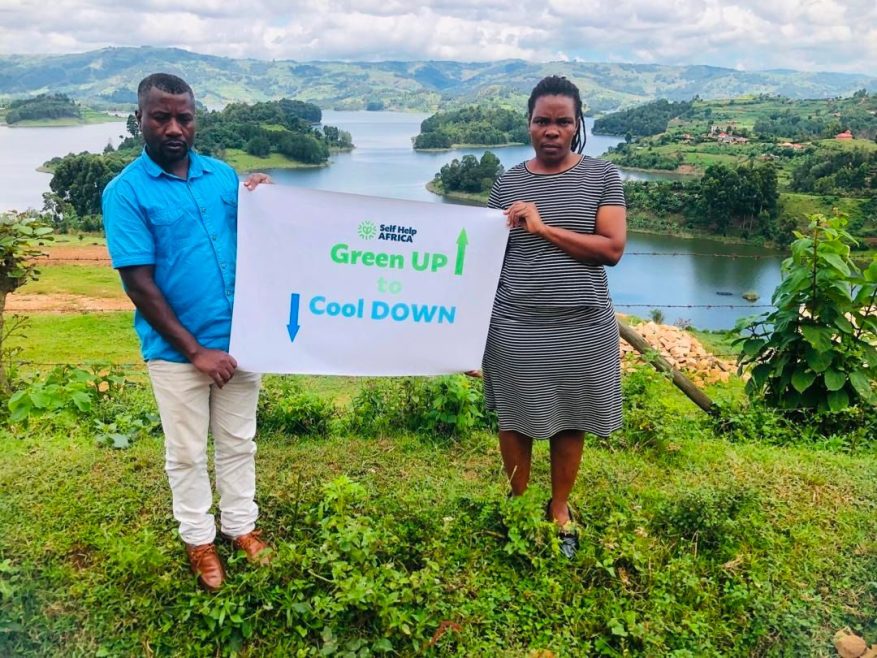Neftali Mugizi and Catherine Nabatesa from our Uganda office.
Earth Day 2024 takes place on 22 April to highlight and promote environmental issues, conservation and the protection of our planet. With that in mind, we’re highlighting the efforts that we’re making through sustainable agriculture solutions.
This year’s theme – ‘Planet vs. Plastics’ – focuses on recognising the threat of plastic pollution by calling for a 60% reduction in plastic production by 2040.
At Self Help Africa, regenerative agriculture, climate-smart farming practices and reforestation efforts are at the core of our work with small-scale farming communities in sub-Saharan Africa.
We’re supporting farmers with drought-tolerant seeds and training to help nourish soil, conserve moisture, and use water and land as efficiently and sustainably as possible.
Through our Irish Aid-funded Sustainable Livelihoods and Inclusive Markets project in Uganda, for example, we established four Ecological Land Use Management (ELUM) centres, which provide training for farmers in climate-smart practices, such as irrigation and intercropping (growing two or more crops on the same piece of land). It’s techniques like these that help smallholder farmers grow a wider variety of crops while using the land sustainably.
Self Help Africa is also part of the world’s biggest community-led land restoration project, the Global EverGreening Alliance’s Restore Africa initiative, which recently launched in Kenya. It aims to restore 1.9 million hectares of land, and directly supports 1.5 million smallholder farming families across six countries in Africa – Ethiopia, Kenya, Malawi, Tanzania, Uganda and Zambia.
We have also launched a campaign encouraging companies to offset their carbon footprint by planting trees with us in Africa. As well as removing carbon from the atmosphere, these trees will leave a lasting legacy in communities by providing a source of food, income, shade and more.
And here in Ireland, our Global Citizenship Education team are available for workshops with schools, community groups and others, focusing on the impacts of climate change and what we can all do to make a difference.
You can find out more about our climate work here.

